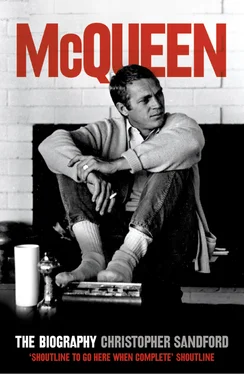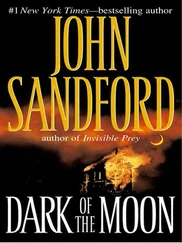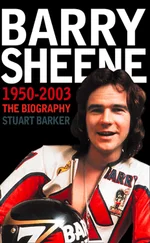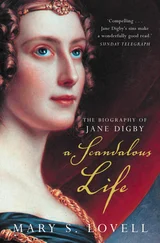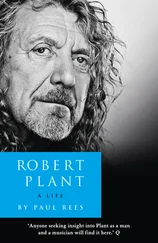1 ...6 7 8 10 11 12 ...33 There were better technical actors than McQueen, more classical or orthodox, but none who did a more brilliant take-off of his hero. He was more volatile than the actual Bogart, colder, more threatening, more thoroughly lost in the parts. He reprised and improved the famous sneer; he paid homage to Bogie and outdid him in the same breath. But Steve’s emotional authenticity went far beyond getting off a decent impersonation. His smallest movements had the kinetic flow of an animal, something feral. Whether playing the loner, the loser or the lover, he drew on his own signature mix of ego and insecurity. There was, first up, the man himself. Steve McQueen looked like a movie star. A front page of him, whether tight-lipped and scowling or smirking archly, was usually worth thousands of extra copies. But there was more to his success than bright blue eyes and a fetching grin. McQueen was one of that rare breed of actors who didn’t need to ‘do’ anything in order to shine. It was enough that he had, as Brando puts it, ‘the mo’, the properties of a bullet in flight.
Laser-like focus was key to the young Steve, always adapting to some new competition, some fresh conflict. When not brooding at home or prising off hubcaps, he would make for the downtown pool hall. He played the game like a war, often wagering his entire day’s cash and immersing himself in the ritual, polishing shots and practising slang – picking up the protocol of the sport. Steve’s technique was sound, his gamesmanship honed, the depth of concentration frightening. But what most struck people, says Gahl, was the way ‘he got in part…Even broke, he’d show up with his own monogrammed stick and a bridge that was pure Minnesota Fats.’ McQueen played with self-assured pride, gliding this kit around the baize and carefully stowing it at night in a leather travelling case. He took it with him everywhere and, in 1956, its third or fourth successor became the very first item of the ‘stuff’ (as he called his stage artefacts) he worked so brilliantly on screen. Persistence, panache, props: the three ingredients were already filling out Steve’s street education, and he soon added a fourth. The fear he aroused in people was palpable, and he reinforced it more than once around town with that same pool-cue.
How much of the juvenile delinquent McQueen would be in his films? The answer is that the more you watch him, the more of him you recognise. It was precisely because he was real – working off his own reactions, not the director’s – that he managed to create roles with mass appeal to high- and lowbrow alike. When he played a loner or a hustler, an emotional basket case, you could be sure it was coming from deep source material and not just a script. Those early years fell, Steve said, as ‘ashes and muck’ on adult life but as gold and fame on his career. In a rare cultural allusion, he sometimes compared his Indianapolis gang days to Fellini’s I Vitelloni. ‘That one…seemed to sum up the kind of kids we were at the time – whistling at chicks, breaking into bars, knocking off lock-up shops…a little arson.’ That kind of thing. His early childhood was the ‘baddest shit imaginable’, McQueen later told his wife.
Then things took another turn for the worse.
Late in 1940 Julian, apparently unable to cope, sent him back to the farm in Slater. Steve spent the next two years there. Home again became the tall prairie-grass pastures around Thomson Lane, the hulking grain storage silos and the love-seat under the old elm close to the house where Claude would sit swinging on summer nights with his new maid and future wife (less than half his age), Eva. McQueen’s room was a tiny attic under the eaves. Because of his obvious affection for his great-nephew, his tendency to josh him, and the enjoyment he took from his company as time went on, much would be made of Claude’s influence on Steve. With such a father figure a boy could hardly be an orphan. ‘The main script read like Tom Sawyer ,’ one McQueen biographer has written. But there was also a dark sub-plot from Tennessee Williams around the place.
A heavy drinker, Claude had a volcanic temper. His fiancée, an ex-burlesque dancer from St Louis, where she left an illegitimate daughter, wore fake diamond rings on every finger and drove a gold Cadillac. The money soon ran out and the farm resorted to raising fryer chickens to sell at Christmas. Steve’s grandfather Vic was still living across the field in the disused sleeper, suffering from terminal cancer. His wife Lil went from being merely pious to fanatical, sometimes hobbling up Thomson Lane nude except for her crucifix and rosary in order to ‘see God’. Most days she didn’t recognise, or even acknowledge, her grandson. There were constant rows between husband and wife, brother and sister, plates flung, cops called. Julian, meanwhile, never once visited. All in all, it was no place for a chronically depressed twelve-year-old with an already fractured home life. If Indianapolis seemed like Fellini, then Slater was a living embodiment of American Gothic, the starkly realistic painting of Midwestern farm life unveiled, like Steve himself, in 1930. He ran away more than once, loping down to the railroad tracks with his few belongings in a knapsack, accompanied by a black-and-tan dog of uncertain ancestry and his black cat Bogie. The brick depot at the far end of Main Street made a viable overnight shelter from the madness of the farm.
The central fact of Steve’s childhood is that he was destroyed by men and blamed a woman. He carped at his vanished father for the rest of his life, but always with the key qualification, ‘Julian!’ He caught the right note of bewilderment. Claude himself wasn’t merely cranky, he was a tough disciplinarian who used strap and rod on his great-nephew; McQueen once called him ‘a shouter, very vociferous…He’d blow me out of the place, but I deserved it.’ His first stepfather, according to Gahl, ‘sexually molested Steve. He told me the two of them had been together one cold night while Julian was downtown, and how [McQueen] could always remember the beads of ice dripping from the ceiling like the sweat on the old geek’s lips…and that he, Steve, had tried to focus on the sound of the water and the wind flapping the hotel sign around outside the door to avoid thinking about what was going on.’ This was the same man who casually – and quite frequently – beat up his wife. That long winter of ritual abuse, physical and emotional, can only have been a trial to Steve’s mother as well, tied as she was to a perverted bully she couldn’t acknowledge as such. Steve, for his part, would always hold Julian responsible for the misery of his early years. ‘Don’t talk to me about love,’ she used to say. ‘I feel the same way before, when and after I fuck somebody – like shit.’
In mid 1942 Julian, now divorced and remarried to a man called Berri (Steve could never remember his first name), sent for her son to join them in California. Various circumstances had led to the move west, earlier that spring, among them another landlord-related crisis in Indiana. The specific reason that brought her to Los Angeles was that Berri was offered steady manual work on the fringes of the film trade. They took an apartment together on a drab, half-paved road of cheap motels between Elysian Park and the Silver Lake district, a mile or two north of downtown. Though there were sweeping views and a few modernist piles nearby, it was practically a genetic rule of thumb that Julian would end up in a slum. If the change was as good as a rest, its effect was to shatter her already primitive concept of family.
Day one she broke out the peroxide, nestled into a deck chair and whooped, ‘California!’
In fact neither the address nor the building itself could have been much worse. The Berris counted rats, raccoons, snakes, wild dogs and prairie-wolves in three or four varieties amongst their neighbours. Coyotes, the most feared, regularly came prowling down from the Verdugo hills. It was all a long way, figuratively, from Hollywood, let alone either Indianapolis or the farm. Steve arrived in LA, he told Gahl, feeling like he’d ‘crash-landed on Mars’, a pale, sulky refugee who now barely recognised his mother. Her first words when she met him at the depot were to tell him to behave around his stepfather, whose name they now took.
Читать дальше
